Vue lecture
Le projet de loi sur les grands projets avance malgré certaines réticences
All NATO members to hit 2% defense spending in 2025, Rutte says
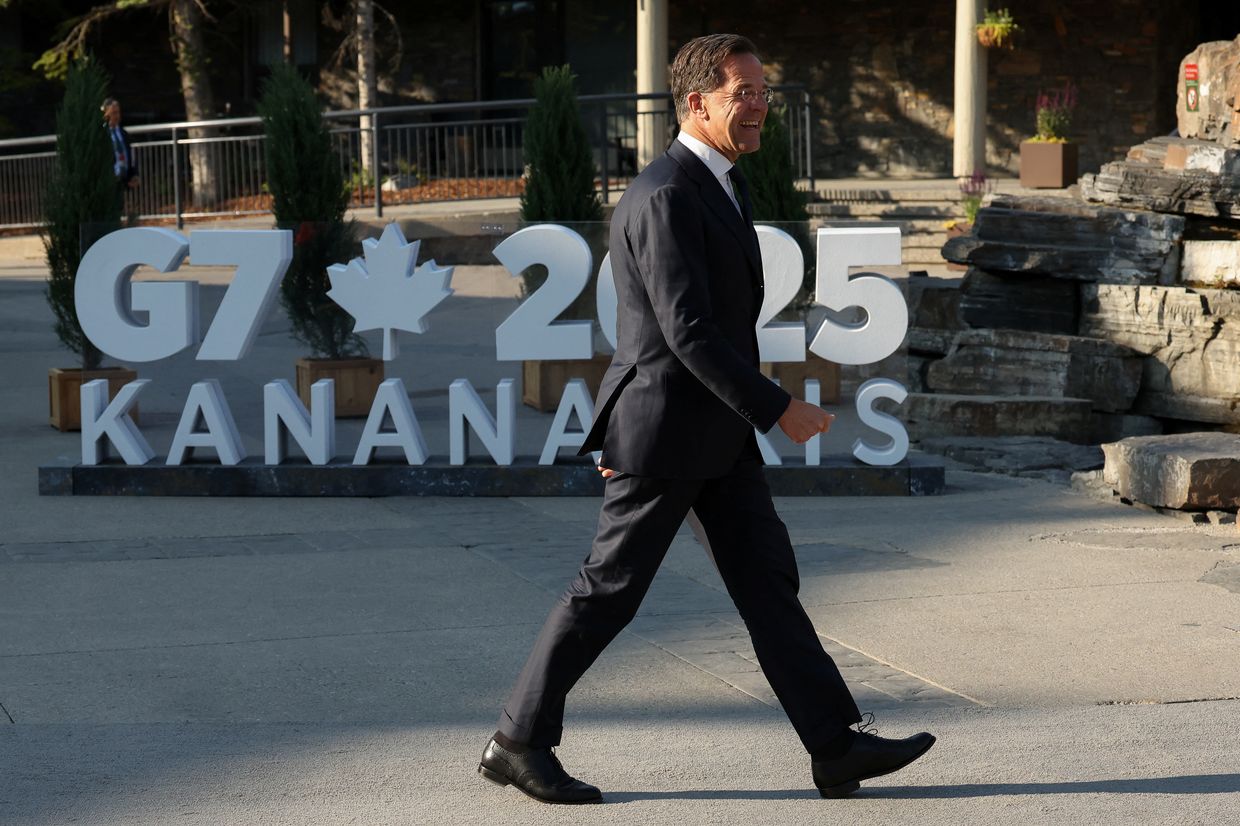
All 32 NATO member states are on track to meet the alliance's 2% GDP defense spending benchmark in 2025, Secretary General Mark Rutte said on June 17 at the G7 summit in Canada.
The announcement marks a major shift for the alliance, which has faced repeated criticism from U.S. President Donald Trump for failing to meet spending commitments.
The U.S. president has long pushed NATO members to spend more on defense, at one point suggesting the threshold be raised to 5% of GDP.
"This is really great news," Rutte said, praising announcements from Canada and Portugal, the last two holdouts. "The fact that you decided to bring Canada to the 2% spending when it comes to NATO this year is really fantastic," he told Canadian Prime Minister Mark Carney.
In 2024, only 23 alliance members met the 2% target, according to NATO estimates. Poland led all members with 4.12% of GDP allocated to defense, followed by Estonia (3.43%) and the U.S. (3.38%).
Rutte's comments come ahead of the June 24–25 NATO summit in The Hague, which has been reportedly scaled back to a single working session on defense spending and alliance capabilities.
The move, according to Italian outlet ANSA, is designed to avoid friction with Trump, whose presence at the summit remains unconfirmed.
Ukraine has been invited to the summit, but President Volodymyr Zelensky may reconsider his attendance amid uncertainty over the U.S. delegation, the Guardian reported on June 17.
According to the outlet, some in Kyiv are questioning whether Zelensky's presence at the summit would be worthwhile without a confirmed meeting with Trump.
Many NATO members have cited Russia's ongoing war against Ukraine and Trump's isolationist rhetoric as reasons to accelerate defense spending and prepare for potential future threats.
 The Kyiv IndependentMartin Fornusek
The Kyiv IndependentMartin Fornusek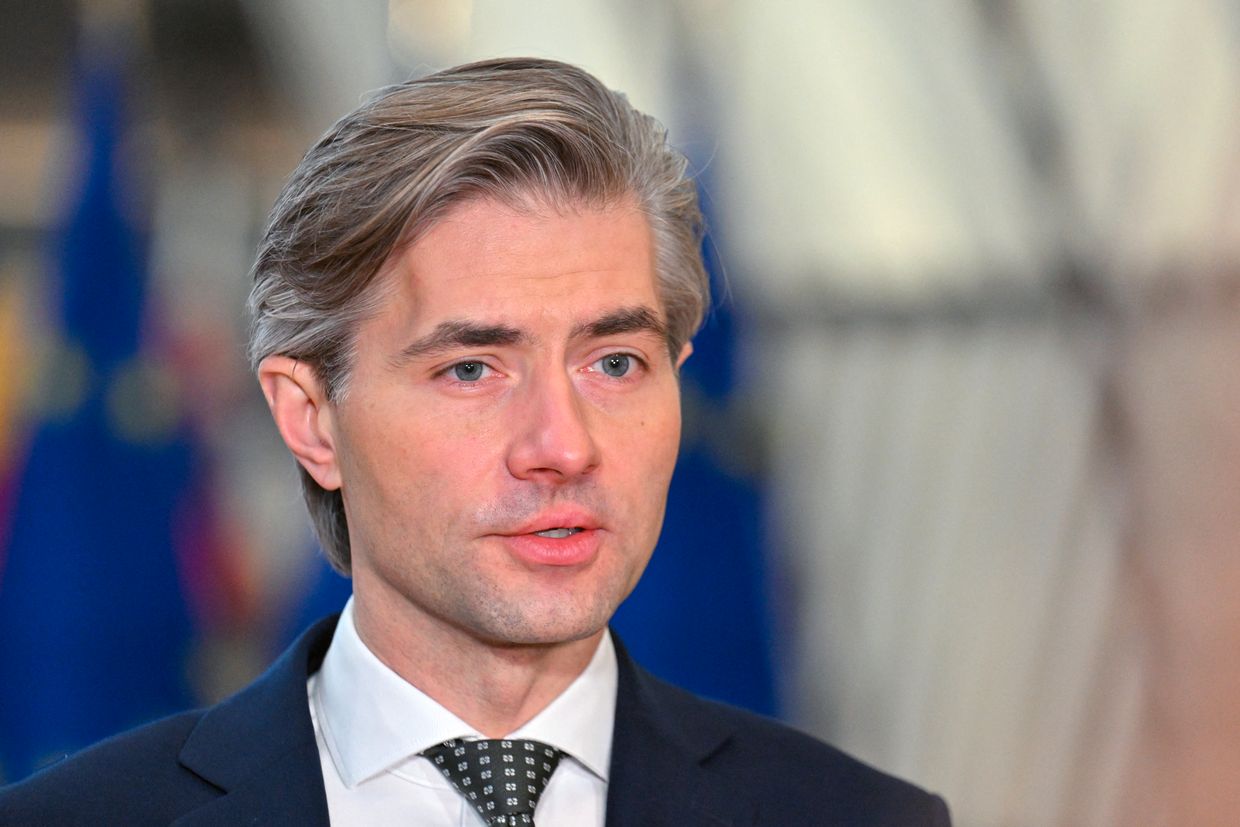
India and Canada Move to Mend Ties Damaged by Sikh Activists’s Killing

© Darryl Dyck/The Canadian Press, via Associated Press
Trump Skips Zelensky Meeting as G7 Talks End With Little for Ukraine

© Kenny Holston/The New York Times
Zelensky welcomes G7 support as summit delivers no strong breakthrough for Ukraine
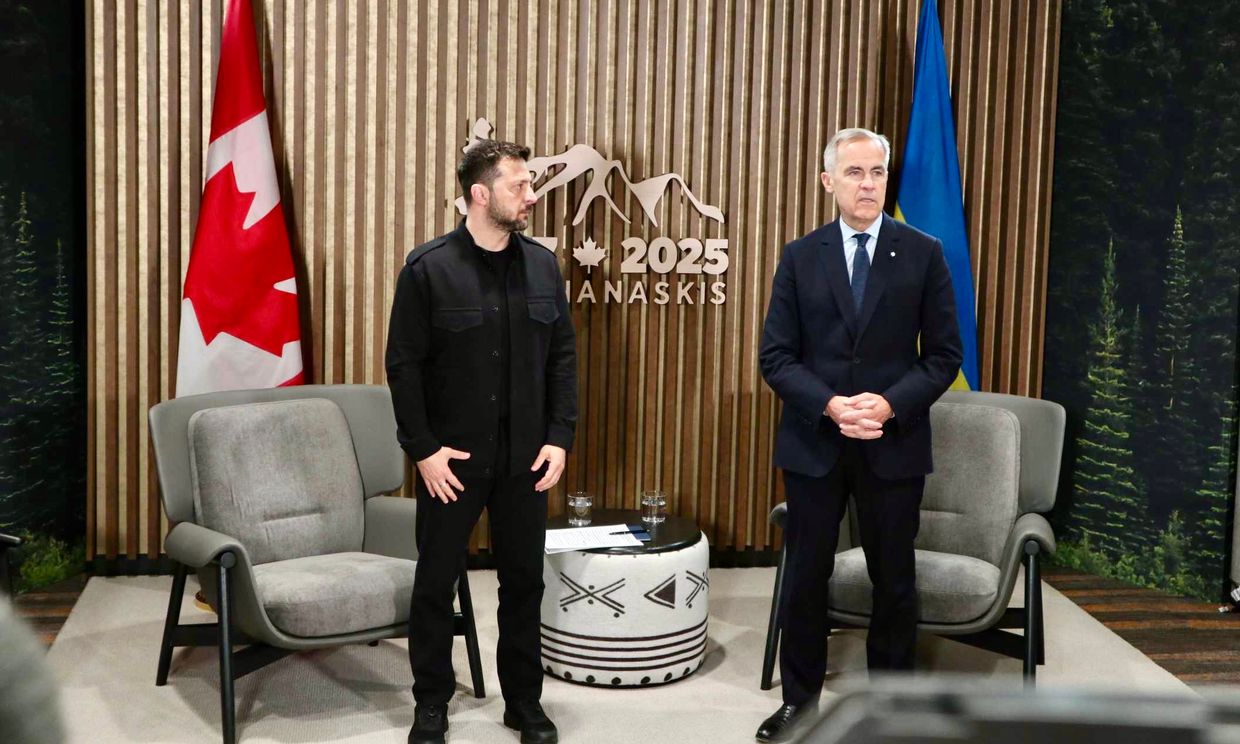
President Volodymyr Zelensky said on June 17 that the G7 summit had produced concrete results for Ukraine, including increased military support, new tranches of aid using frozen Russian assets, and additional sanctions targeting the sources of Russia’s war effort.
"It is important that our partners are ready not only to support our defense now, but also to rebuild Ukraine together after the war ends. I thank everyone who helps us fight Russian aggression and who, together with Ukraine, is building a strong security architecture for the future," he added in a Telegram post.
Canadian Prime Minister Mark Carney announced a new support package for Ukraine earlier in the day, including two billion Canadian dollars ($1.5 billion USD) in military aid and over two billion Canadian dollars ($1.6 billion USD) loan for reconstruction. The package also includes funding for drones, ammunition, armoured vehicles, and new sanctions targeting Russia’s energy revenues and sanctions evasion.
U.K. Prime Minister Keir Starmer also announced a set of measures aimed at increasing pressure on Russian President Vladimir Putin, who continues to reject calls for an unconditional ceasefire in Ukraine. "The 30 targets strike across Russia’s financial, military and energy sectors in response to Putin’s continued aggression," reads the U.K. government statement. The new sanctions also "crack down further on Putin’s shadow fleet," targeting 20 of his oil tankers.
Starmer added that he "strongly" supports tightening the price cap on Russian crude oil to further cut into the Kremlin’s energy revenues.
The G7 nations, however, struggled to present a unified stance on the war in Ukraine after U.S. President Donald Trump voiced support for Russian President Vladimir Putin and called for Russia to be readmitted to the group. Russia was expelled from what was then the G8 after its 2014 invasion of Crimea.
Trump left the summit a day early to address the Israel-Iran conflict from Washington, departing without meeting Zelensky, who had hoped for a one-on-one conversation to press for stronger sanctions against Russia.
Zelensky had already cut his own visit to Canada short on June 17 and was preparing to return to Kyiv while G7 talks were still underway. He had been scheduled to travel to Calgary for events and a press conference with the Ukrainian diaspora, a source told a Kyiv Independent journalist on the ground, but those plans were canceled following a deadly Russian missile strike on Kyiv and changes to the summit agenda.
Zelensky later said he told G7 leaders that "diplomacy is now in a state of crisis" and urged allies to continue pressing Trump "to use his real influence" to help end the war.
 The Kyiv IndependentKateryna Hodunova
The Kyiv IndependentKateryna Hodunova
Ce qu’on peut retenir du sommet du G7 en Alberta
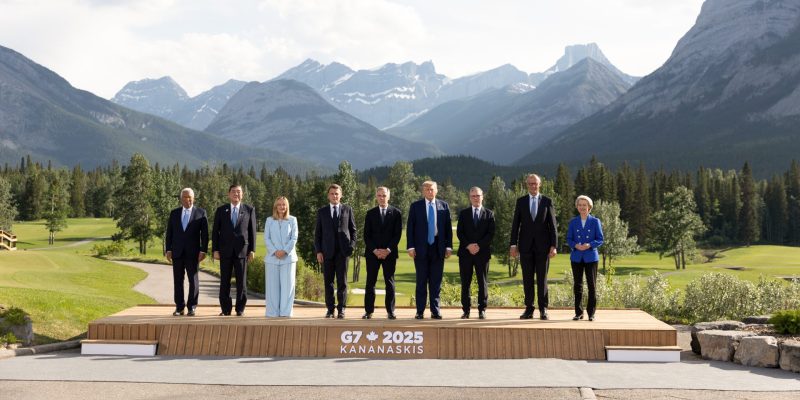
À l’issue d’un sommet de deux jours, les dirigeants des pays du Groupe des 7 ont publié 7 déclarations communes, respectivement:
- sur l’escalade militaire entre Israël et l’Iran;
- sur l’intelligence artificielle;
- sur la lutte contre le trafic de migrants;
- sur l’ingérence étrangère;
- une charte sur les feux de forêt;
- un plan d’action sur les minéraux critiques;
- une vision commune pour l’avenir des technologies quantiques.
Pour l’Ukraine
Mark Carney a annoncé une nouvelle aide militaire de 2 milliards $, et un prêt de 2,3 milliards $ pour rebâtir les infrastructures et les systèmes publics ukrainiens.
Avec l’Inde
Le premier ministre fédéral et son homologue indien Narendra Modi ont convenu de nommer chacun un nouveau haut-commissaire (l’équivalent d’un ambassadeur) dans l’autre pays, pour remplacer leurs prédécesseurs qui avaient été expulsés à la suite d’une crise diplomatique l’an dernier.
[L'article Ce qu’on peut retenir du sommet du G7 en Alberta a d'abord été publié dans InfoBref.]
Un député conservateur laisse son siège pour Pierre Poilievre
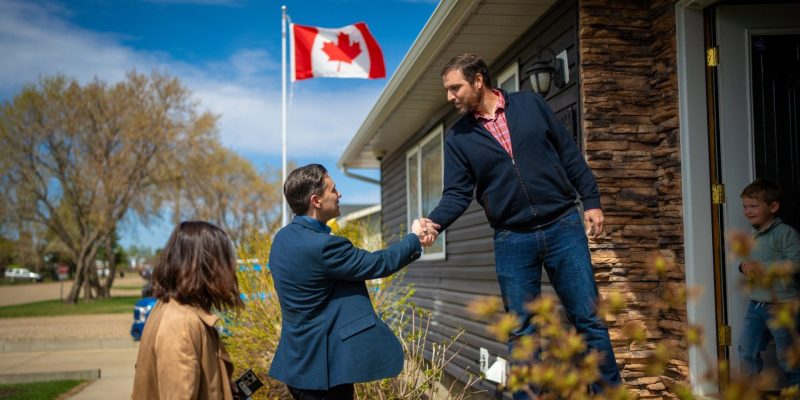
Comme il s’était engagé à le faire, le député Damien Kurek a démissionné de son poste de député d’une circonscription d’Alberta où il avait été réélu en avril avec 82% des voix.
Le chef du Parti conservateur tentera de s’y faire élire lors d’une prochaine élection partielle, à la suite de sa défaite dans sa propre circonscription aux élections générales.
Mark Carney avait indiqué qu’il déclencherait l’élection partielle le plus tôt possible pour permettre à Pierre Poilievre de revenir siéger à la Chambre des communes en tant que chef de l’opposition officielle.
[L'article Un député conservateur laisse son siège pour Pierre Poilievre a d'abord été publié dans InfoBref.]
Zelensky leaves G7 early without meeting Trump as Canada drops Ukraine statement amid US pushback
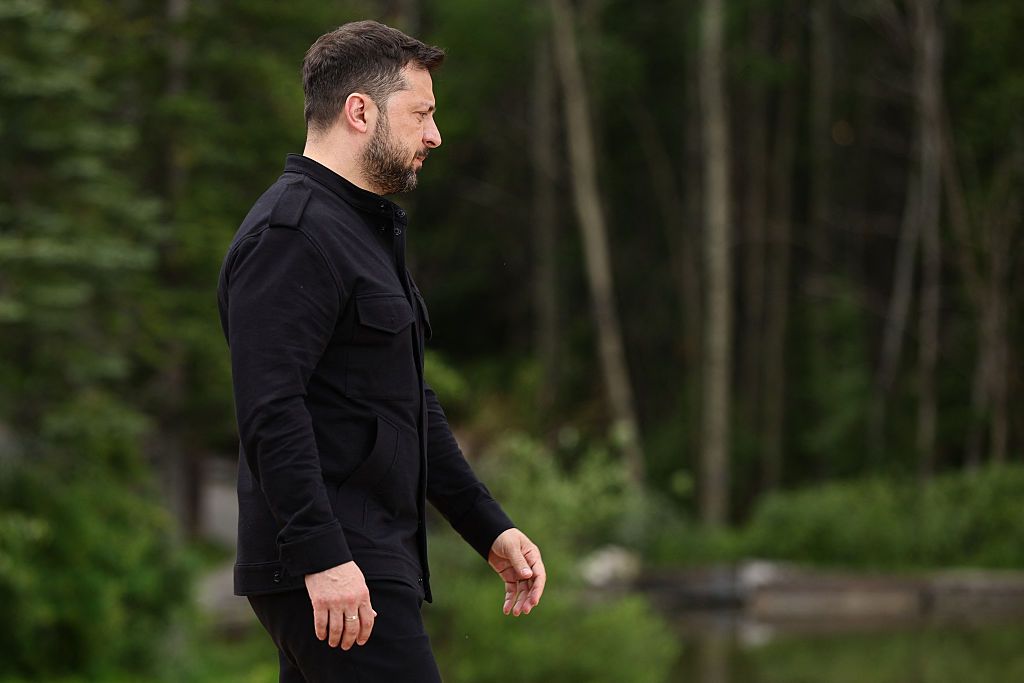
Editor's note: This is a developing story and is being updated.
President Volodymyr Zelensky is cutting his visit to Canada short and will return to Kyiv on June 17, while G7 talks are still ongoing, a source told a Kyiv Independent journalist on the ground.
He had been scheduled to travel to Calgary for additional events and a press conference, but those plans have been cancelled. The change comes in the wake of a deadly Russian missile strike on Kyiv overnight, as well as changes to the G7 agenda.
Zelensky had travelled to the summit hoping to meet one-on-one with U.S. President Donald Trump and to push for stronger sanctions against Russia. However, Trump left the summit early, citing the crisis in the Middle East, and no bilateral meeting or unified G7 statement took place.
Zelensky said he had told the G7 leaders that "diplomacy is now in a state of crisis" and noted the allies need to continue calling on Trump "to use his real influence" to force an end to the war."
"Even if the American President is not putting enough pressure on Russia right now, the truth is that America still has the broadest global interests and the largest number of allies. All of them will need strong protection," he said in a Telegram post.
Meanwhile, Canada dropped plans for the G7 to issue a joint statement on the war in Ukraine after the United States pushed to weaken the language, according to a Canadian official speaking on the sidelines of the summit. The official said Canada felt a watered-down version would not be fair to Ukraine.
"Canada and the rest of the G7 should strengthen their support for Ukraine, particularly by furnishing it with additional military assistance that would include, among other things, increased ammunition," Alexander Lanoszka, an associate professor of international relations in the department of political science at the University of Waterloo, told the Kyiv Independent.
"One hopes that the specter of U.S. disengagement would catalyze increases in assistance. Unfortunately, despite whatever they say, G7 leaders could very well lack the confidence for whatever reason to do much absent strong U.S. leadership," Lanoszka added.
Canada did announce a sweeping new support package for Ukraine on June 17, during a bilateral meeting with Zelensky on the final day of the G7 summit in Kananaskis. The measures include two billion Canadian dollars ($1.5 billion USD) in military funding and new sanctions aimed at restricting Russia’s energy revenues and evasion tactics.
U.K. Prime Minister Keir Starmer also announced a set of measures aimed at increasing pressure on Russian President Vladimir Putin, who continues to reject calls for an unconditional ceasefire in Ukraine. "The 30 targets strike across Russia’s financial, military and energy sectors in response to Putin’s continued aggression," reads the U.K. government statement. The new sanctions also "crack down further on Putin’s shadow fleet," targeting 20 of his oil tankers.
Starmer added that he "strongly" supports tightening the price cap on Russian crude oil to further cut into the Kremlin’s energy revenues.
Zelensky said late on June 17 that the G7 summit still produced concrete results for Ukraine, including increased military support, new tranches of aid using frozen Russian assets, and additional sanctions targeting the sources of Russia’s war effort.
 The Kyiv IndependentYuliia Taradiuk
The Kyiv IndependentYuliia Taradiuk
Le député Kurek démissionne pour ouvrir la voie à une partielle pour Poilievre
Le député Kurek démissionne pour ouvrir la voie à une partielle pour Poilievre
Le programme fédéral d’aide à l’achat de véhicules électriques sera rétabli
Le programme fédéral d’aide à l’achat de véhicules électriques sera rétabli
Canada announces $1.5 billion in new military aid to Ukraine, sanctions targeting Russia at G7 summit
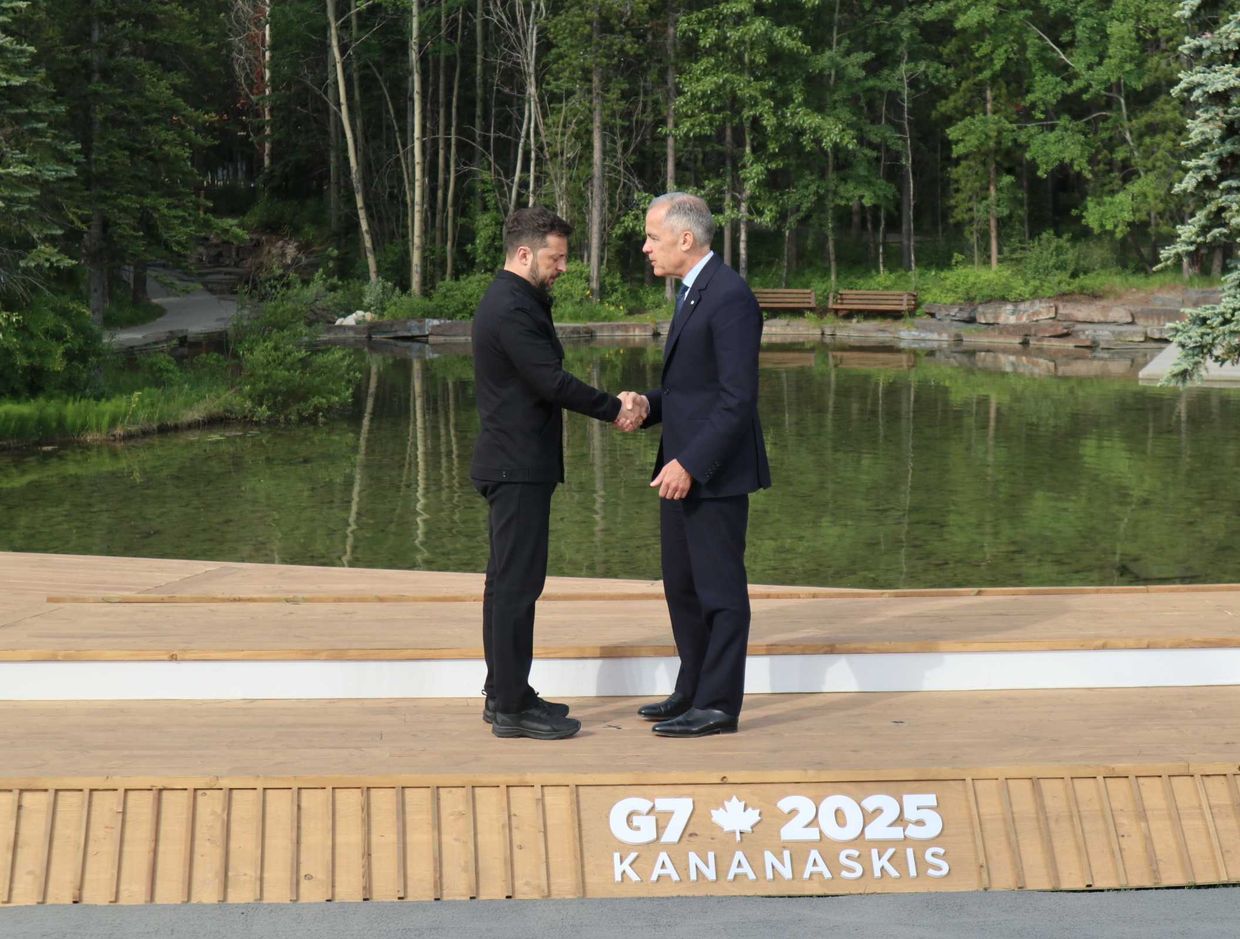
Canadian Prime Minister Mark Carney announced a sweeping new support package for Ukraine on June 17, during a bilateral meeting with President Volodymyr Zelensky on the final day of the G7 summit in Kananaskis, Alberta.
The measures include two billion Canadian dollars ($1.5 billion USD) in military funding and new sanctions aimed at restricting Russia’s energy revenues and evasion tactics.
"To be absolutely clear, this support will be unwavering until we get a just peace for Ukraine and the Ukrainian people," Carney was quoted as saying.
The aid package includes funding for drones, ammunition, and armoured vehicles, as well as a $2.3-billion loan to support the reconstruction of Ukrainian infrastructure damaged by Russian attacks. Zelensky, who was invited to the summit by Carney, thanked the prime minister for his support, noting that Ukraine had just endured one of the largest missile attacks since the start of the full-scale invasion, killing 14 and injuring 117 people in Kyiv.
The new sanctions target 77 individuals and 39 entities, including 15 people involved in Russia’s so-called “shadow fleet,” three financial firms facilitating war-related transactions, and 14 entities tied to the development of quantum technologies with possible military use. Canada also upgraded its sanctions against Russian oil and gas giant Surgutneftegas.
Canada’s announcement came alongside similar measures from the U.K., which sanctioned individuals and entities connected to Russian finance, energy, and military operations, including 20 shadow fleet vessels and two U.K.-based individuals accused of exporting high-tech electronics to Russia.
 The Kyiv IndependentKateryna Denisova
The Kyiv IndependentKateryna Denisova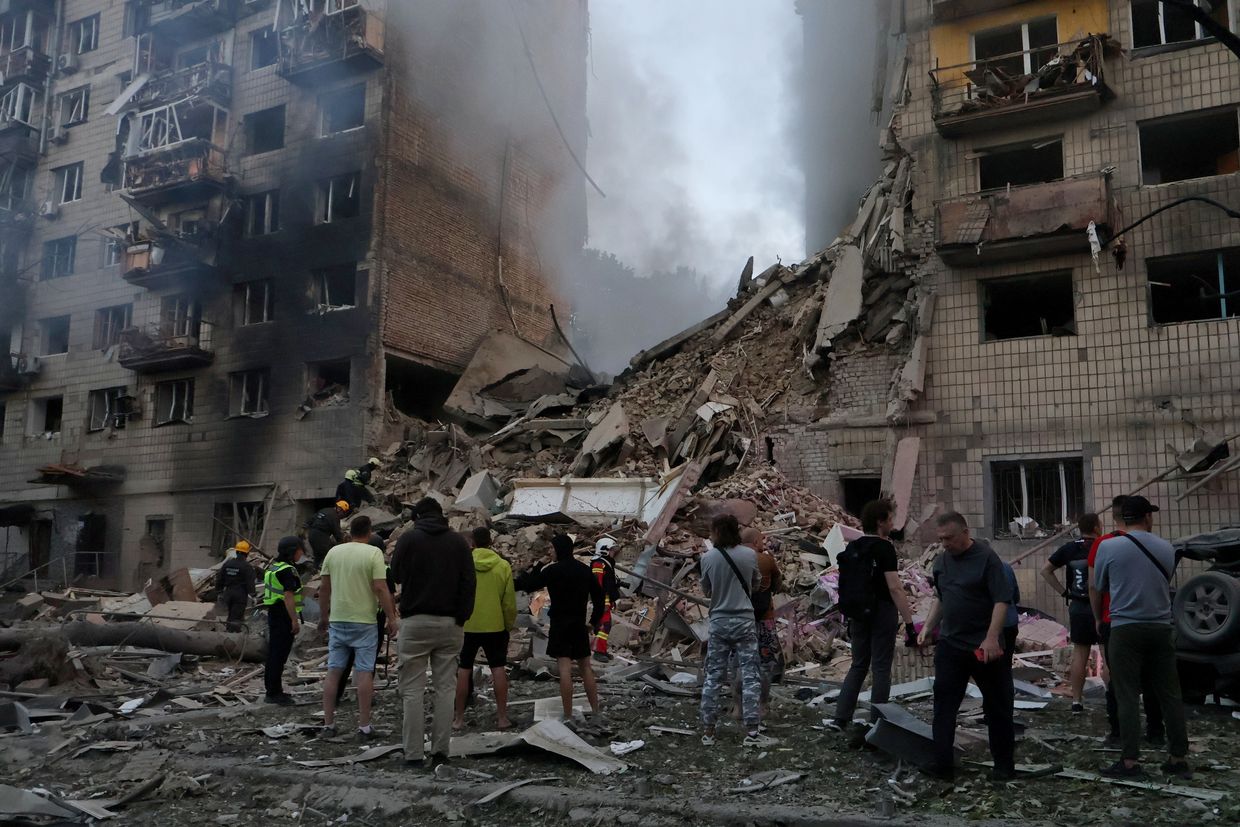
Des pages Web en anglais seulement pour des membres du gouvernement Carney
Des pages Web en anglais seulement pour des membres du gouvernement Carney
“Nothing to say to Zelenskyy”: Trump retreats from G7 as Russia launches biggest terrorist attacks on Kyiv yet
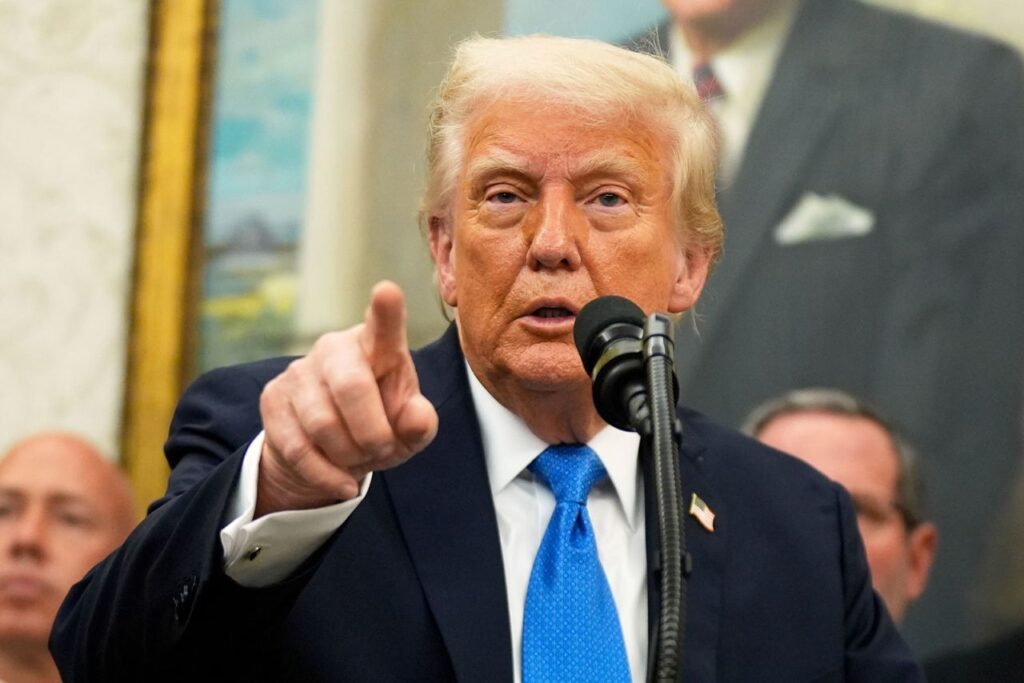
“Better to leave than to face the truth.” This is how former Ukrainian Foreign Minister Volodymyr Ohryzko explains US President Donald Trump’s behavior at the G7 summit on Ukraine, Hromadske reports.
Trump left the 2025 G7 Summit a day earlier than planned. At the event, he suggested that the war in Ukraine might have been avoided if Russia had not been expelled from the G7 in 2014. The next day, Russia launched one of the largest terrorist attacks on Kyiv, killing 14 civilians and striking residential houses.
“He has nothing to say to Zelenskyy. He can’t find a single argument to justify his defense of Putin. This is one of those situations where it’s easier to just leave,” the diplomat explains.
According to Ohryzko, all Ukraine can expect from Trump right now is weapons sales and intelligence sharing. Genuine support must come from Europe, but only if European leaders stop “being afraid of their own shadow.”
What happened in Ukraine today is yet another reproach to our European partners, he says.
“We need French or German fighter jets to shoot down missiles over Ukraine — just like the US shoots down Iranian missiles over Israel,” the diplomat adds.
He emphasizes that such action would not drag NATO into the war, as it would be an act of defense, not aggression.
“There isn’t a Russian sitting on every missile. These are aerial weapons flying into the territory of a country friendly to France, so they should be shot down,” he says.
Ukrainian President Volodymyr Zelenskyy must raise this issue directly with allies during his visit to Canada, in his view.
“The question must be put bluntly. I believe Zelenskyy has to do it today, in Canada,” he concludes.
On 17 June, Ukraine’s capital and other cities were subjected to sheer terror. Russia deployed its every available aerial weapon to strike Kyiv, Odesa, and Zaporizhzhia, including hypersonic Kinzhal missiles, Kalibrs, cruise and ballistic missiles, and Shahed drones.
Read more:
- How Ukraine can win, p.4: Just repeat what Putin says
- Russia bombs Kyiv and Iran targets Israel, Trump wants ceasefire — but only from Ukraine
You could close this page. Or you could join our community and help us produce more materials like this.
We keep our reporting open and accessible to everyone because we believe in the power of free information. This is why our small, cost-effective team depends on the support of readers like you to bring deliver timely news, quality analysis, and on-the-ground reports about Russia's war against Ukraine and Ukraine's struggle to build a democratic society.
A little bit goes a long way: for as little as the cost of one cup of coffee a month, you can help build bridges between Ukraine and the rest of the world, plus become a co-creator and vote for topics we should cover next.
Become a patron or see other ways to support.
Le Canada échoue à avoir une déclaration conjointe sur l’Ukraine
Le Canada échoue à avoir une déclaration conjointe sur l’Ukraine
L’étude du projet de loi fédéral sur les grandes infrastructures se fera sous le bâillon
L’étude du projet de loi fédéral sur les grandes infrastructures se fera sous le bâillon
At G7 Summit With Trump, Starmer Picks Up Papers and Political Wins for U.K.

© Kenny Holston/The New York Times
Haiti is Using Drones to Fight Gangs. Here’s Why That’s Likely Illegal.

© Christinne Muschi/Reuters
Haiti is Using Drones to Fight Gangs. Here’s Why That’s Likely Illegal.

© Christinne Muschi/Reuters
Donald Trump a déjà quitté le sommet du G7
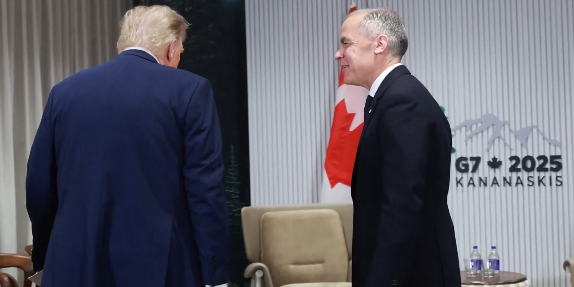
La Maison-Blanche a indiqué hier soir que le président américain devait écourter son séjour au Canada en raison de l’escalade militaire entre Israël et l’Iran.
Mark Carney avait rencontré Donald Trump hier matin à Kananaskis, en Alberta, avant l’ouverture du sommet des dirigeants du G7.
À l’issue de la rencontre entre Carney et Trump, le gouvernement canadien a indiqué qu’ils allaient poursuivre les négociations en vue de signer un accord commercial dans les 30 prochains jours.
Les deux dirigeants ont convenu «de rester en contact régulier» au cours des prochaines semaines.
[L'article Donald Trump a déjà quitté le sommet du G7 a d'abord été publié dans InfoBref.]
At G7, Trump Renews Embrace of Putin Amid Rift With Allies

© Kenny Holston/The New York Times
Flattery or Discipline? The Difficult Task of Managing Trump.

© Kenny Holston/The New York Times
Le Parti conservateur a appuyé le bâillon demandé par le gouvernement Carney
La Chambre des communes a adopté la motion visant à limiter le temps de débat sur le projet de loi qui doit accélérer la réalisation de grands projets d’infrastructure.
- Presque tous les députés libéraux et conservateurs ont voté pour.
- Les députés du Bloc québécois et du NPD et la députée verte ont voté contre.
Le projet de loi devrait vraisemblablement être adopté avant les congés d’été.
[L'article Le Parti conservateur a appuyé le bâillon demandé par le gouvernement Carney a d'abord été publié dans InfoBref.]
Flattery or Discipline? The Difficult Task of Managing Trump.

© Kenny Holston/The New York Times
Un accord commercial entre Ottawa et Washington dans les 30 jours
Un accord commercial entre Ottawa et Washington dans les 30 jours
Canada reportedly set to announce new military aid for Ukraine at G7
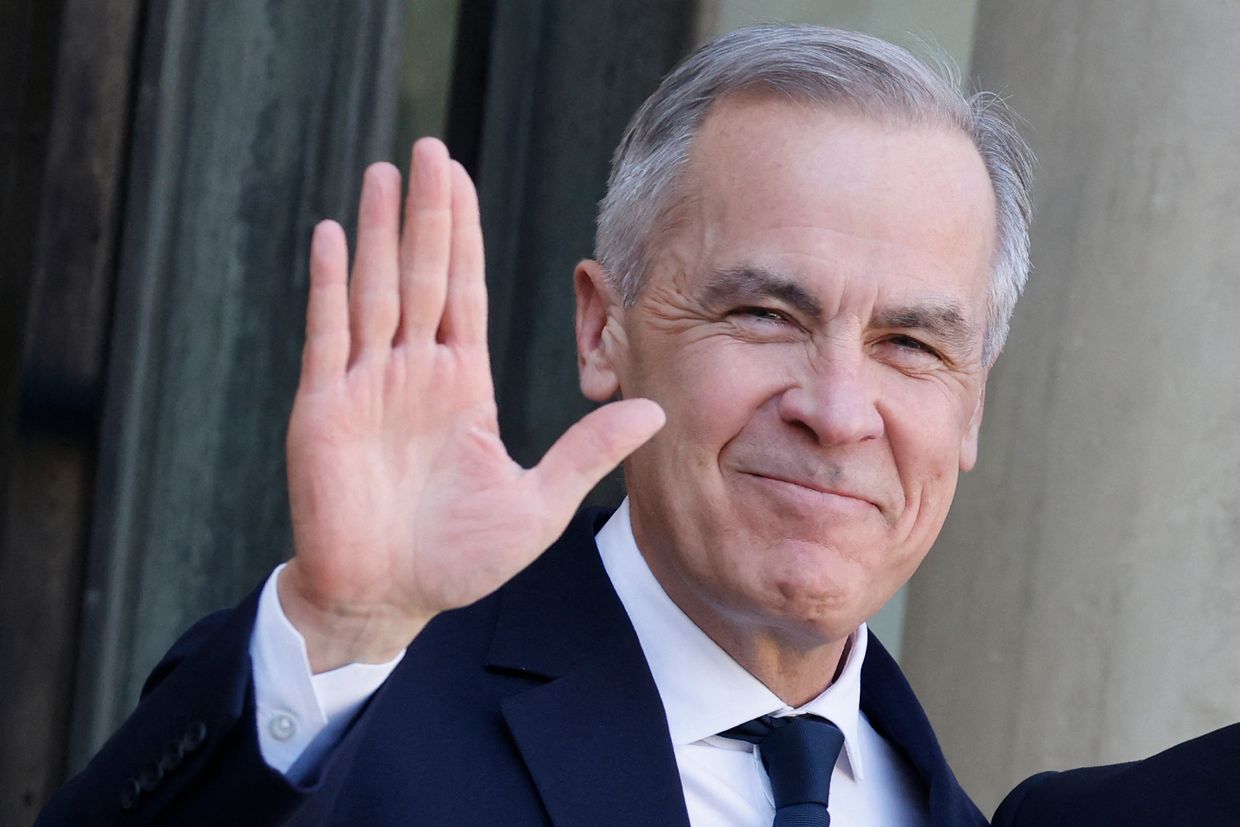
Canada's Prime Minister Mark Carney is expected to announce additional support for Ukraine during the G7 summit, CBC News reports on June 16, citing government sources.
Canada, which holds the G7 presidency in 2025, invited President Volodymyr Zelensky to participate in what will be his fourth — and arguably most fragile — G7 Leaders' Summit since the outbreak of the full-scale invasion in 2022. Carney is also expected to hold a one-on-one meeting with the Ukrainian president.
As part of Carney’s pledge to boost defense spending this year, Ottawa has allocated two billion Canadian dollars ($1.46 billion USD) for military aid to Ukraine and the expansion of broader defense partnerships. According to one source, the government is set to disclose on June 20 how much of that funding will be directed specifically to Ukraine and what it will support.
Canada has been a strong ally of Ukraine, providing 19.5 billion Canadian dollars ($13.5 billion) in assistance, including 4.5 billion Canadian dollars ($3.1 billion) in military aid.
Following their bilateral talks, G7 leaders will join outreach countries for discussions on Ukraine’s ongoing fight against Russia.
Meanwhile, European Commission President Ursula von der Leyen and European Council President Antonio Costa urged G7 nations to ramp up pressure on Moscow through tougher sanctions, arguing that it is key to securing a ceasefire in Russia’s war against Ukraine.
"To achieve peaceful strength we must put more pressure on Russia to secure a real ceasefire, to bring Russia to the negotiating table, and to end this war. Sanctions are critical to that end," von der Leyen said at a press briefing on June 15, attended by a Kyiv Independent journalist.
Von der Leyen emphasized that economic sanctions have been effective since the start of Russia’s full-scale invasion. She pointed out that joint G7 and European Union measures have reduced Russian oil and gas revenues by nearly 80% since February 2022.
"(T)he sanctions are working, and we will do more," she said.
Un projet de loi bloquiste pour abolir l’obligation de prêter serment au roi
Un projet de loi bloquiste pour abolir l’obligation de prêter serment au roi
Les conservateurs appuient le bâillon des libéraux pour adopter le projet de loi C-5
Canada’s uranium could replace Russia’s resources, choking off Kremlin money, say expert
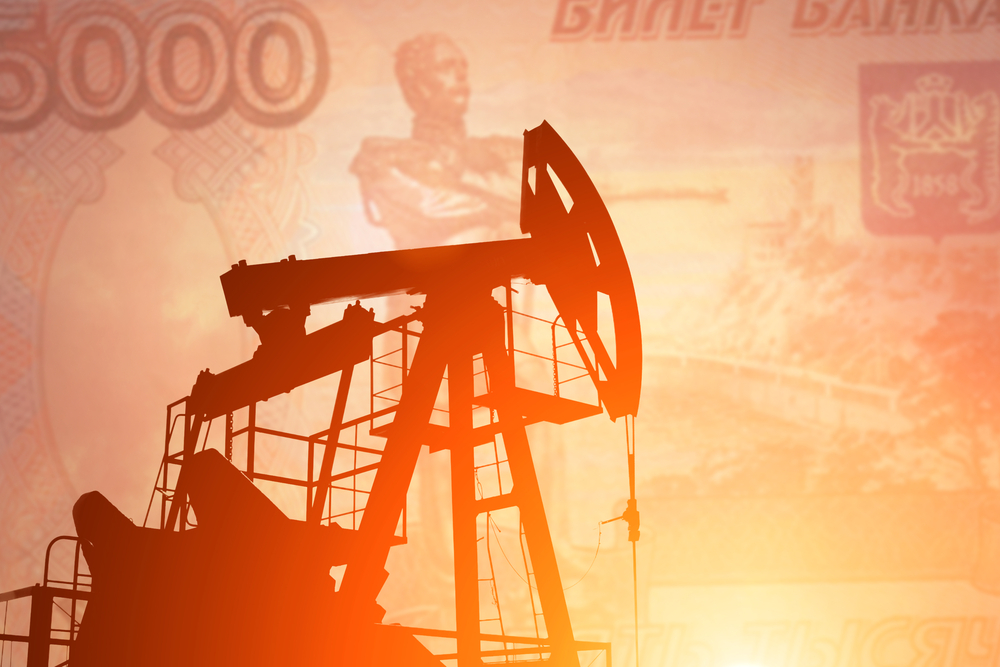
It is time to say no to Russian resources. The G7 countries should completely stop purchasing energy from Russia, replacing it with Canadian alternatives, said John Kirton. He is the head of the G7 research group at the University of Toronto, UkrInform reports.
Today, the G7 summit begins in Alberta, Canada, with Ukrainian President Volodymyr Zelenskyy among the participants. First-time participants include German Chancellor Friedrich Merz, British Prime Minister Keir Starmer, and Japanese Prime Minister Shigeru Ishiba.
“It is necessary for the G7 to continue pressuring India to stop purchasing Russian oil,” the expert says.
But it is equally important for the G7 countries to completely abandon imports of Russian energy resources, such as oil, coal, gas, and uranium.
“Canada, which holds the fifth-largest oil reserves in the world and is among the top three uranium producers, can help,” Kirton continues.
He emphasizes that Canada “can supply the US with all necessary isotopes so they do not depend on Russia or even Kazakhstan.”
“Although Kazakhstan may ultimately be closer to us than to Russia,” the expert believes.
US President Donald Trump and Ukrainian President Volodymyr Zelenskyy plan to meet during the G7 summit. This meeting will be their first encounter since April, when they had a 15-minute conversation before Pope Francis’ funeral.
After that meeting, Trump stated that Russia had no justification for recent attacks on Ukrainian civilian areas and suggested that the Russian leader might not want to end the war. Following the meeting, there were talks about imposing new sanctions on Russia, but the US did not enact them.
Earlier, Trump held a 50-minute phone call with Putin, during which the Russian president wished Trump a happy 79th birthday. Trump revealed that Putin informed him Russia is ready to resume peace negotiations with Ukraine, while the US president reiterated his interest in a speedy resolution to the war.
After their conversation, Moscow launched the largest attack on Ukraine’s city of Kremenchuk, targeting an oil refinery and the thermal power plant. Witnesses say the skies over the town turned red during 30 strikes. Ukraine extinguished the fire for at least eight hours.
You could close this page. Or you could join our community and help us produce more materials like this.
We keep our reporting open and accessible to everyone because we believe in the power of free information. This is why our small, cost-effective team depends on the support of readers like you to bring deliver timely news, quality analysis, and on-the-ground reports about Russia's war against Ukraine and Ukraine's struggle to build a democratic society.
A little bit goes a long way: for as little as the cost of one cup of coffee a month, you can help build bridges between Ukraine and the rest of the world, plus become a co-creator and vote for topics we should cover next.
Become a patron or see other ways to support.
Les conservateurs appuient le bâillon des libéraux pour adopter le projet de loi C-5
Les manifestants investissent le Sommet du G7
Les manifestants investissent le Sommet du G7
Au G7, Donald Trump continue de s’en prendre à Justin Trudeau
Au G7, Donald Trump continue de s’en prendre à Justin Trudeau
Un nouveau député à la Chambre des communes porte la cause du français à bout de bras
Un nouveau député à la Chambre des communes porte la cause du français à bout de bras
Mark Carney rencontre Donald Trump avant le sommet du G7
Le premier ministre fédéral et le président américain, dont les gouvernements négocient actuellement une entente commerciale, doivent discuter seul à seul ce matin, avant l’ouverture du sommet du G7 qui a lieu en Alberta jusqu’à mardi.
La récente escalade militaire entre Israël et l’Iran fera partie des principaux sujets abordés par les dirigeants du G7 (Canada, États-Unis, France, Allemagne, Royaume-Uni, Italie, Japon).
Priorités annoncées par le gouvernement fédéral pour le sommet:
- renforcer la paix et la sécurité;
- améliorer la sécurité énergétique;
- établir des partenariats pour l’avenir.
En marge du sommet, Carney doit rencontrer des dirigeants d’autres pays, dont le premier ministre indien Narendra Modi.
[L'article Mark Carney rencontre Donald Trump avant le sommet du G7 a d'abord été publié dans InfoBref.]
As Trump Returns to G7, Rift With Allies Is Even Deeper

© Tierney L. Cross/The New York Times
As Trump Returns to G7, Rift With Allies Is Even Deeper

© Tierney L. Cross/The New York Times
Le Canada et le Royaume-Uni voient le monde de la même façon, dit Keir Starmer
Le Canada et le Royaume-Uni voient le monde de la même façon, dit Keir Starmer
What to Know About the G7 Summit in Canada: Who Attends, Agenda Items and More

© Kenny Holston/The New York Times
Can Canada Beef Up Its Military After Decades of Atrophy?

© Gavin John for The New York Times